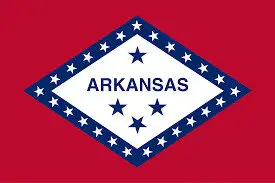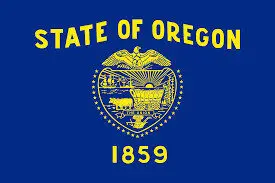Family business succession planning is the critical process of ensuring your business continues to thrive when leadership transitions to the next generation. Without proper estate planning, your family’s legacy and financial security hang in the balance. With around 2/3 of US family businesses lacking a formal succession plan, the risk of business disruption, excessive taxation, and family conflict remains dangerously high.
This comprehensive guide will walk you through the essential components of effective succession planning, providing you with actionable strategies based on the latest research and expert insights from 2023-2025.
The Current Landscape of Family Business Succession
Alarming Statistics (2023-2025)
- Roughly 2/3 US family businesses lack a formal succession plan, while almost half have no plan whatsoever
- The Estate tax exemption drops to $7M (adjusted for inflation) in 2026 from $13.99M in 2025
- Businesses without continuity plans face liquidation at “pennies on the dollar” during forced exits
Baby Boomer Transition Trends
The massive wave of baby boomer business owners approaching retirement has created significant shifts in succession planning. Recent trends include:
- More than half of small business buyers are now younger generations (Millennials and Gen Z)
- There’s growing interest in seller-financed transitions as a flexible exit strategy
- Top transition strategies include family succession, external sales, and employee buyouts
Why Succession Planning Matters: The Johnson Manufacturing Case Study
The Crisis Scenario
The Johnson Manufacturing Company, a $10M-revenue third-generation machinery manufacturer, faced an existential crisis when its 68-year-old patriarch died suddenly. The family business had thrived for decades but lacked proper business succession planning.
Specific Challenges
- Leadership vacuum: Siblings disputed operational control, halting planned expansion
- Tax liability: An unexpected $4.5M estate tax bill due to outdated trust structures
- Liquidity crisis: No funds available to buy out disengaged heirs who wanted immediate cash
The Solution Implemented
The surviving family members worked with advisors to implement a three-pronged approach:
- Key person insurance: A $2M policy funded a buy-sell agreement, enabling surviving partners to purchase shares tax-free
- Revocable living trust: Moved 30% ownership to heirs over 5 years, reducing the taxable estate by $3M
- Advisory board: Hired a non-family CEO during a 3-year transition period, stabilizing operations and leadership
The Outcomes
This comprehensive planning approach produced significant results:
- Avoided 40% estate tax via phased gifting, saving $1.2M
- Maintained 94% employee retention through clear leadership transition
- Preserved family harmony by establishing clear roles and expectations
- Protected the company’s market position without operational disruption
Essential Components of Succession Planning
Well-Structured Revocable Living Trust
Your revocable living trust must include the necessary authorization within the “Trustee Powers” section to allow your Successor Trustee to manage your business affairs. This includes:
- Authorization to manage corporate stock, closely held business interests, or Qualified Subchapter S Trust (QSST) shares
- Powers related to specific business types (farm and ranch operations, etc.)
- Clear designation of who can make operational decisions if you’re incapacitated
Proper Business Entity Titling
How your business entity is titled represents a critical component of effective succession planning:
- Consider owning your corporate shares or LLC membership as the Trustee of your Revocable Trust
- Alternatively, ensure corporate or LLC documents include a “Transfer Upon Death” section
- Without proper titling, the Trust has no immediate authority to execute your wishes or operate the company
Buy-Sell Agreements
A buy-sell agreement (sometimes called a cross-purchase agreement) outlines what happens to business ownership when a key person dies or becomes disabled:
- Entity purchase: The company owns life insurance policies on key people
- Cross purchase: Individual owners are named as beneficiaries for policies covering partners
- Must include clear valuation formulas for business interests
- Prevents becoming unwilling business partners with inexperienced heirs
Strategic Life Insurance Planning
Using properly structured cash value life insurance is a key funding mechanism for succession plans:
- Provides immediate liquidity for estate taxes and other costs
- Enables business continuity without forced asset sales
- Facilitates buyouts of deceased owners’ interests
- Insurance policies, coverage amounts, and beneficiary designations must align with your succession plan
Tax Considerations in Succession Planning
Estate Tax Implications
The changing estate tax landscape presents significant challenges for family business owners:
- Current exemption of $13.99M (2025) scheduled to drop to approximately $7M in 2026
- Estate tax rates remain at up to 45% of taxable estate value
- Using the unlimited marital deduction only delays taxes if the surviving spouse doesn’t work in the business
- Consider immediate business interest transfers to active next-generation family members
Liquidity Planning
Most family businesses have assets tied up in operations, creating liquidity challenges:
- Estate taxes must be paid within nine months of death
- Business interests may need to be liquidated if insufficient cash is available
- Section 303 of the Internal Revenue Code allows certain redemptions to be treated as sales
- Consider installment payment options for estate taxes under IRC Section 6166
Planning for Business Continuation
Key Employee Strategies
Positioning key employees for continued operations represents a vital component:
- Identify and groom potential future leaders
- Create retention incentives for critical non-family employees
- Consider a key employee stock ownership plan (ESOP)
- Develop a management transition timeline with clear milestones
Acquisition Planning
For some businesses, planning for an eventual acquisition provides the best outcome:
- Empower specific individuals to evaluate and market the company
- Establish valuation methods and minimum acceptable terms
- Create a process for due diligence preparation
- Develop a communication plan for employees, customers, and vendors
Emerging Trends in Family Business Succession
Digital Transformation Impact
Technology is reshaping succession planning in significant ways:
- A growing number of next-generation leaders use virtual platforms for transition preparation
- Cloud-based dashboards track ownership transfers in real-time
- AI-driven valuations help almost half of businesses assess optimal transition timing
FAQ: Common Family Business Succession Questions
How do I transfer ownership without triggering estate taxes?
Several strategies can minimize estate tax impact, including annual gifting programs, installment sales to intentionally defective grantor trusts (IDGTs), grantor retained annuity trusts (GRATs), and family limited partnerships. Each has specific requirements and benefits that should be evaluated with qualified advisors.
What happens if a business owner dies without a succession plan?
Without proper planning, the business may face forced liquidation, family disputes, customer/employee uncertainty, and significant tax burdens. Courts may appoint administrators unfamiliar with the business, and valuable talent may leave amid the uncertainty.
How do I prepare the next generation to take over leadership?
Start with early involvement in the business, provide formal education in relevant fields, develop a structured mentoring program, and create a phased transition of responsibilities. Consider an advisory board to provide guidance and implement a clear timeline with defined milestones.
How much does a family business succession plan cost?
The cost varies based on business complexity and size but typically ranges from $5,000 to $50,000 for professional fees. However, this investment can save millions in taxes, preserve business value, and prevent costly disputes. The cost of not planning properly is almost always far greater.
When should I start my succession planning process?
Ideally, succession planning should begin at least 5-10 years before your anticipated exit. However, the best approach is to incorporate succession planning into your overall business strategy from the beginning, with regular reviews and updates as circumstances change.
Conclusion: Your Action Plan for Effective Succession Planning
Family business succession planning is not a one-time event but an ongoing process that evolves with your business, family, and financial circumstances. By implementing the strategies outlined in this article, you can protect your life’s work, preserve family harmony, and create a lasting legacy.
Don’t become another statistic in the 61% of businesses without proper succession plans. Begin your planning process today by taking these steps:
- Schedule a comprehensive business valuation
- Meet with experienced succession planning professionals
- Begin family discussions about future roles and expectations
- Review your existing estate planning documents
- Evaluate key person insurance needs
The sooner you start planning for succession, the more options you’ll have and the better positioned your business will be for a smooth transition. Your family’s legacy and financial future depend on the actions you take today to secure tomorrow.





